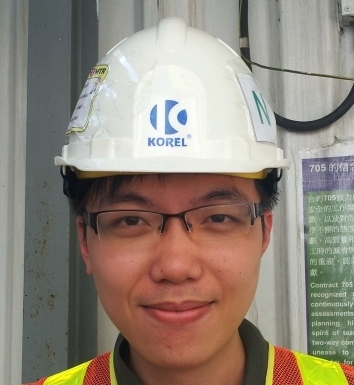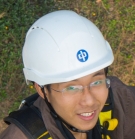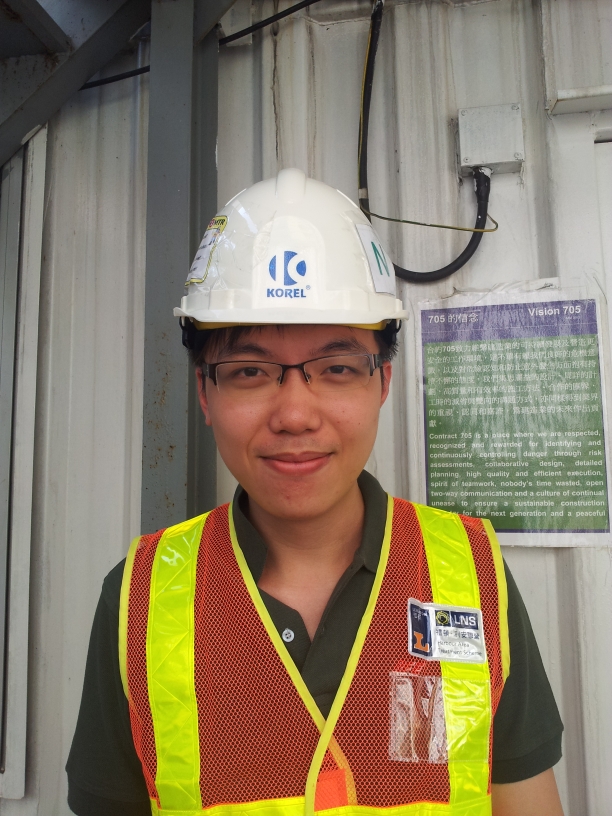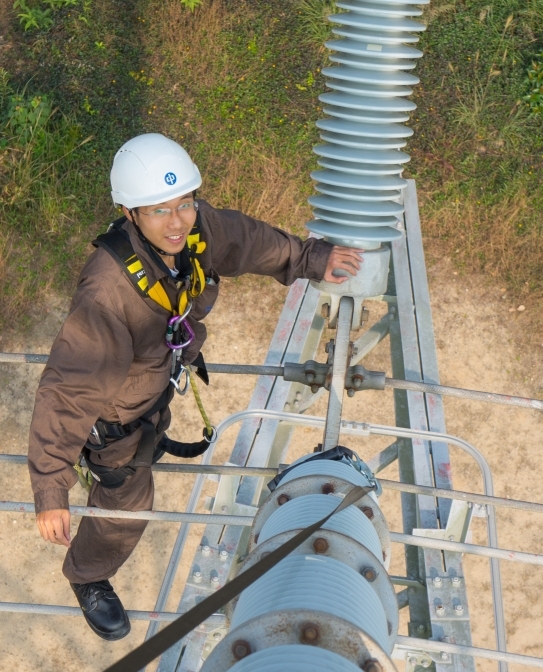Homepage
Home
This is a hands-on project-based course which introduces the basic engineering concepts, experimental skills and design methodology needed for the design and construction of a hardware based system. Students will work in small groups on a practical project in which they will apply the design methodology introduced to them in lectures in a design project. The project work will involve defining milestones, identifying the constraints and requirements, defining the requirement specifications of the design, making and evaluating different possible designs by carrying out experiments to obtain data for refining the design, prototyping of the final design and testing of the system built in the project.(Not for students who have taken ESTR1000.)
Recent EE Graduate Careers
|
Lo Ngai Yin 盧毅然
我曾參與由學系舉辦的工作實習計劃,到一間生產智能卡讀卡器的公司工作一年。在職期間,公司給予我不少學習機會,讓我汲取寶貴的經驗和實用的工作技能。我現於射頻工程有限公司任職系統工程師,工作範疇包括:負責地面集群無線電系統設計、室內/隧道無線電分佈網絡設計、與其他承包商接洽會議及協調、 系統接口測試及調試等。 |
|
Kong Lim Ho 鄺廉皓
我現在正從事iOS應用程式開發的工作,這是一個很新的行業,同事大多是畢業不久的小伙子,由一兩位富經驗的工程師帶領。平日主要和設計師合作建立用戶界面和應用後台的程式編寫,其中最考功夫的是了解用戶的需要,因為他們往往不能清楚說出需要,或不清楚手機應用程式的功能和局限。我們唯有細心觀察,一次又一次的改良,方可製作出令人稱心滿意的作品。 |
|
Tam Tsz Yan 譚梓昕
在中大畢業後,我成為了中電工程的見習工程師。中電工程是中電集團旗下的子公司,負責工程項目如中電的配電網路、鐵路通訊系統、能源增值服務等。在兩年的實習計劃裡,我有機會參與公司不同範疇的工作,擴闊了我對香港工程界的視野。 |
問:電氣工程和電子工程有什麼區別?
答:
“電氣”指學科中的“強電流”和“傳統”的部分,而“電子”則指“弱電流”和“現代”的部分。 在電氣工程方面,學生將學習電網和相關組成部分的知識,核心內容包括發電系統、配電與輸電網絡、電機、變壓器、控制理論、能量傳遞與熱力學等。而電子工程所涉及的主要課題包括半導體物理與器件、電子與集成電路、計算硬件與軟件、通信系統和信號處理等。
問:信息工程、計算機科學與工程和電子工程有什麼區別?
答:
答:以網上遞交申請為例, 網上申請博士學位是通過信息工程(IE)進行,信息工程強調「信息」或「訊息」的處理、傳遞與檢索,這些方面在現代社會中愈來愈重要。「計算機科學與工程」,如其名,更專注於圍繞現代計算機的硬件和軟件系統的開發和應用。 最後,比起前二者,電子工程則涵蓋更多範圍,學生可獲得計算機、信息系統、半導體、電路等各方面的知識。我們重視IC(集成電路)設計、無線技術、光纖通信、半導體器件、信號處理和人工智能,旨在確保學生充分瞭解各種電子設備和系統的方方面面。
問:電子工程領域面臨的挑戰有哪些?
答:
電子領域正在迅速發展,而現代電子產品背後的物理基礎也在不斷革新。電子工程師不僅要掌握電子電路和元器件的基本原理,還要對新技術有很強的適應能力。 與其他領域的工程師不同,電子工程師必須不斷更新自己的技能,這就是挑戰! 對於那些熱衷於科技創新的人來說,電子工程相關的職業一定會讓他們感到充實。
電子工程就業前景如何?
答:
電子工程廣泛的課程範圍旨在幫助畢業生適應通訊、計算機、半導體、製造、研發、客戶服務、銷售等領域的廣泛就業機會。現代科技的進步在很大程度上取決於電子技術的進步。 在電子產品市場不斷擴大的今天,擁有良好解決問題能力和溝通能力的電子工程系畢業生是非常受雇主歡迎的,更重要的是,我們應該認識到,成功的關鍵不僅在於相關的教育,而是更多地取決於我們對職業目標的態度和付出。
畢業後需要進入工廠工作嗎?
答:
兩者皆可。有些畢業生最終可能會參與生產線,成為產品或設計工程師,其他畢業生可能從事金融、公務員等完全不同的工作,全都取決於學生為自己設定的職業目標。 學系設有學長計劃,教學人員可以隨時向學生提供包括職業規劃在內的各種事宜的建議與輔導。
Question: What is the difference between Electrical Engineering and Electronic Engineering?
Answer:
"Electrical" refers to the "heavy current" and "traditional" part of the discipline, while "Electronic" is more on the "light current" and "modern" part. In Electrical Engineering, students will learn all aspects of the electrical network and the related components. Core contents include electricity generation systems, electricity distribution/transmission networks, electrical machines, transformers, control theory, energy transfer and thermodynamics. On the other hand, the main topics covered by Electronic Engineering may include semiconductor physics/devices, electronic/integrated circuits, computing hardware/software, communication systems and signal processing.
Question: What is the difference between IE, CSE and EE?
Answer:
You are highly encouraged to use online application. Online application for PhD study can be done atIE, which stands for "Information Engineering", tends to emphasize more on processing, transmission and retrieval of "information" or "messages". These commodities are becoming increasingly more important in modern societies. CSE, as the title "Computer Science and Engineering" describes, is more specialized on the design and application of hardware and software systems surrounding modern computers. Finally "EE", which of course refers to "Electronic Engineering", has the flavour of broadness. One gets a bit of everything, computers, information systems, semiconductors, circuits etc. We put emphasis on IC design, wireless technology, fibre optic communication, semiconductor device, signal processing and artificial intelligence. The aim is make sure that students are well aware of every aspect surrounding all kinds of electronic devices and systems.
Question: What are the challenges in the field of Electronic Engineering?
Answer:
The world of electronics is advancing rapidly, and it is partially driven by the new discoveries in physics over the years. Although the fundamental physics behind modern electronic appliances has not changed much over the years, electronic engineers are not only required to master the basic principles behind electronic circuits and components, they are also expected to be very adaptable to new technologies. Unlike engineers working in other disciplines, electronic engineers have to constantly renew their skills. This is the challenge! For those who are keen to get involved in technological innovations, a career in electronic engineering will certainly keep their mind busy.
Question: What is the job prospect of EE?
Answer:
The broad spectrum of topics covered by EE aim to prepare graduates to fit into a wide range of career opportunities in the field of telecommunication, computer, semiconductors, manufacturing, R&D, customer services, sales etc. Modern technologies are largely driven by advancements in electronics. In the ever expanding market for electronic products, EE graduates with good command of problem-solving and communication skills are always in great demand. More importantly, we should also recognize that the key to success does not solely depend only on the relevance of our education, but rather more on our attitude and commitment towards our career goals.
Question: Do we need to work in a factory in future?
Answer:
Yes and No. Some of the students might end up working in close relation to production lines as product or design engineers. Others might take up completely different jobs in the financial market, civil services etc. It all depends on what career goal the student has set for himself/herself. In this department we have a personal mentoring scheme in which academic staff members are always available to give advices and counselling to students on various matters including those on career.
A degree in Electronic Engineering provides a solid foundation to launch your career locally or globally with excellent prospects in a wide range of technological sectors, which include: telecommunications, broadcasting, automotive electronics, railway, electric power, semiconductor, medical equipment, government agencies (EMSD and ICAC are examples), information technology, industrial manufacturing, and product design. Some of our graduates choose to pursue postgraduate studies in local or overseas institutions.
Employment Statistics for 2020 EE Graduates
The survey was conducted with 32 full-time first-degree graduates in 2020 responded. Among them, 15.6% of graduates would be further studies and the others entered different employment sectors.
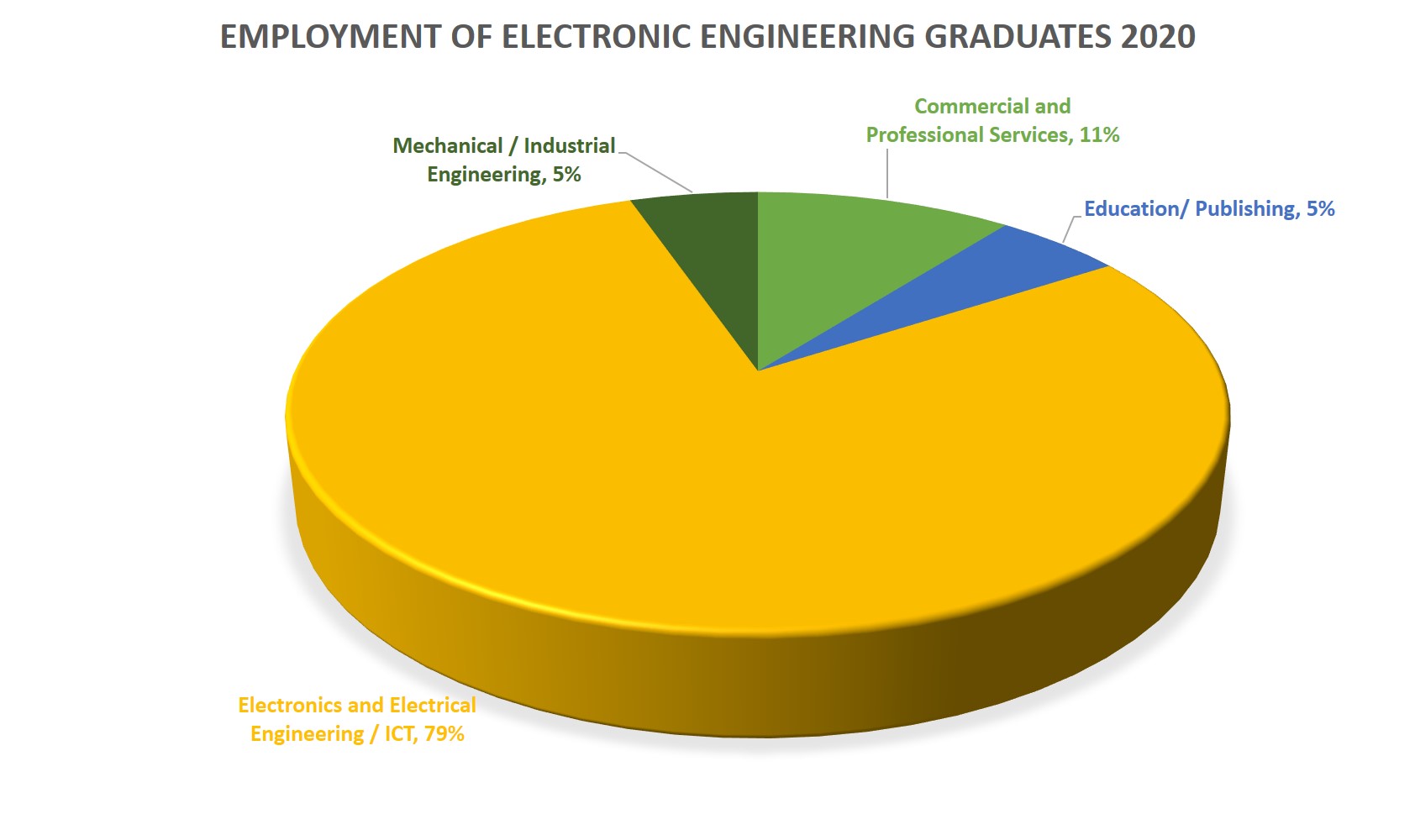
EE graduates are competitive and well-received by local and overseas employers. The mean monthly salary of 2020 EE graduates was reported to be $17,861.
Subcategories
Undergraduate Programmes Article Count: 109
MPhil-PhD Programme Article Count: 53
MSc Programme Article Count: 35
Student Admission Article Count: 0




